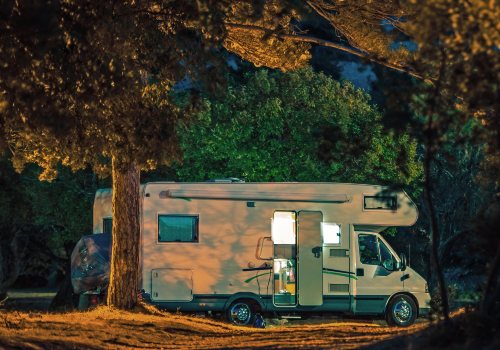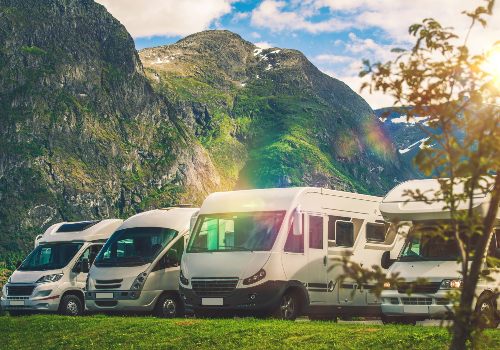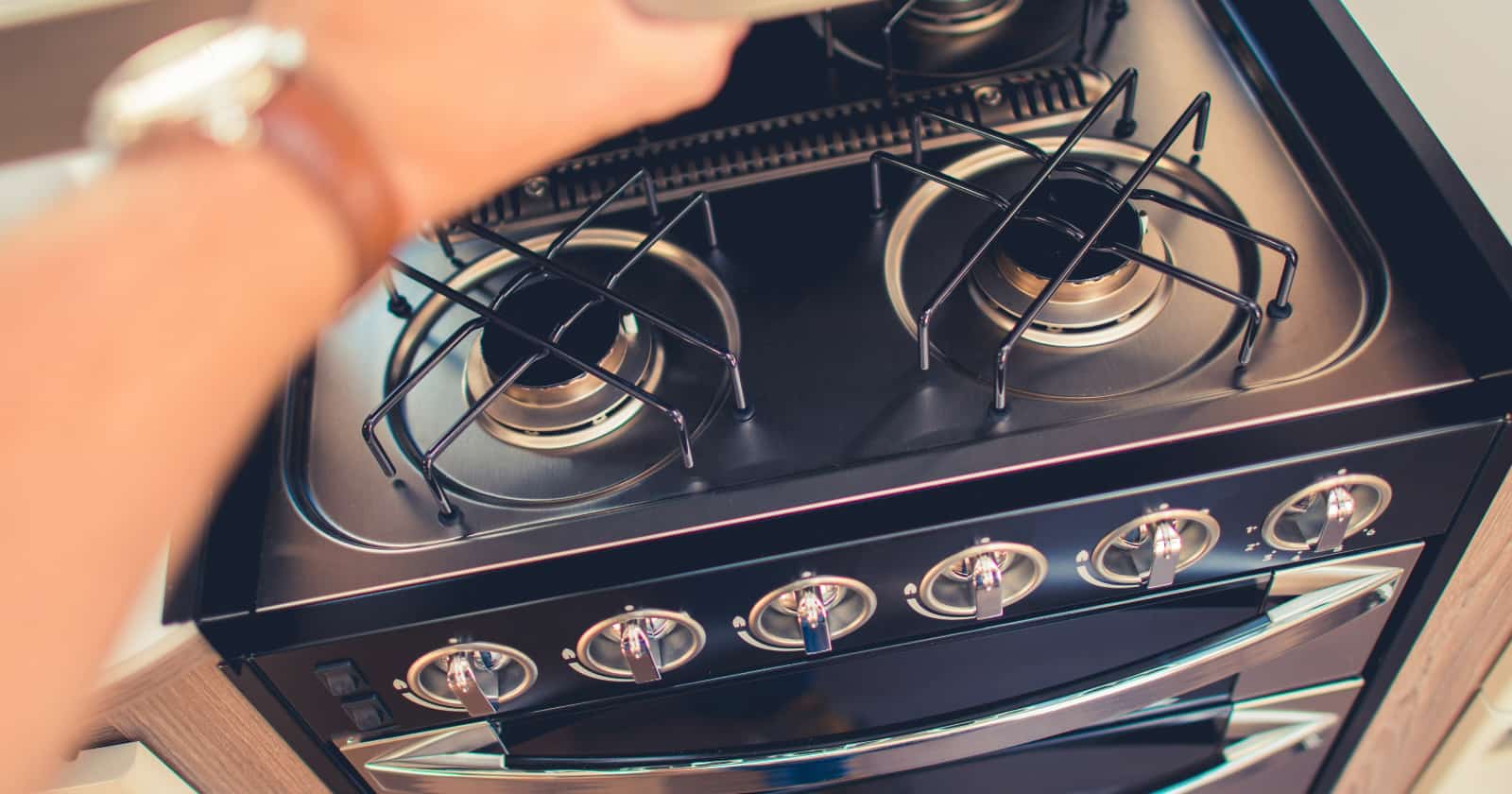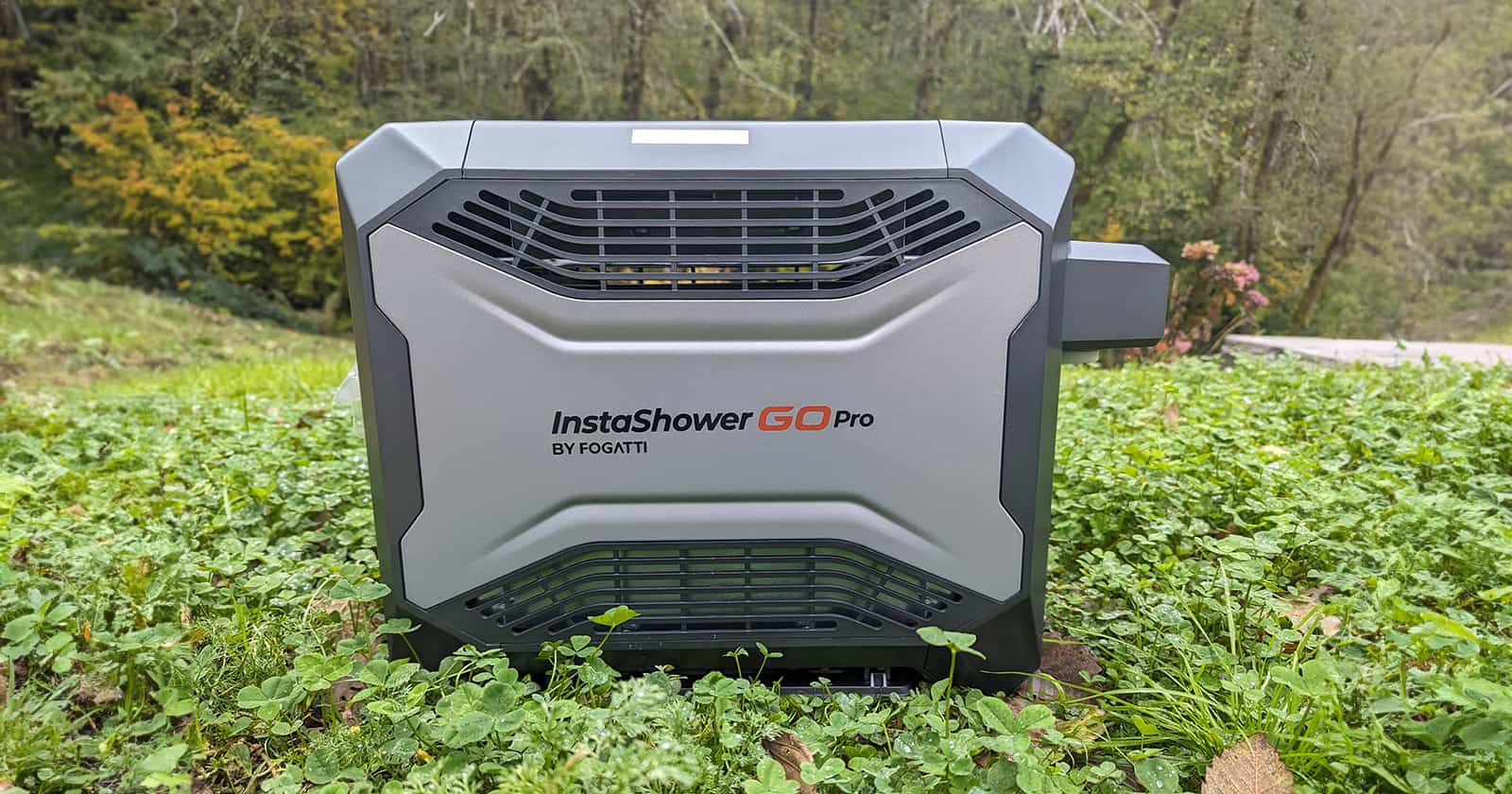Congratulations! You just purchased your first RV. That sense of accomplishment, excitement, and joy is mixed in with “what the heck did I just do?” Now it’s time to get those 15 things you have to buy after getting a new travel trailer.
The call of the road is stronger than ever, and you’re ready to hit the gas pedal. You bought a camper, now you need to prepare for the road.
Your wallet may feel like it’s smoking from the large amount of money you just spent on your RV, but now you have some essential gear you’ll have to purchase. The good part is the amount of money you need to complete your travel trailer supply checklist is like adding a few sticks to the fire, not another gas can.
To make this as painless as possible, we’ve put together an organized list for first-time travel trailer owners on what you should keep in your camper trailer. You don’t need to wait until you have your RV, this is what you need to know before buying a travel trailer concerning essential gear.
What Comes With A New Travel Trailer
If your sales representative was good at their job, they did a complete walkthrough of your new RV. We hope you came prepared with your own version of an RV checklist to make sure everything is in proper working order. You may be asking yourself, “do new travel trailers come with sewer hoses?” or other questions about essential gear.
RV dealerships may have a “new owners kit,” or some other gift they give to their customers, but they aren’t required. If they do offer basic hoses, they may be too short, poorly made, or not what you really need. Gifts like that are generally used to make sure they get the best scores on their customer surveys.
You’ll either want to walk into their parts department, take a ride over to a camping supply store, or go home and jump on Amazon to find the best RV gadgets.
Essential Supplies Checklist
1. Hoses
There are a few different hoses you’ll need. If you’ve seen that movie with Robin Williams, we promise the real versions are a lot more sanitary.
- Sewer Hose: This hose is three inches in diameter. They come in a variety of colors and measure six feet in length. More expensive versions have thicker plastic that is less prone to puncture.
- Sewer Hose Attachments: There are various attachments that make the draining process easier. One type connects to the end of the hose to create a good seal to the dump station. Another is a clear plastic elbow that lets you monitor the flow.
- Protective Gloves: There are two schools of thought to keep your hands clean. Some like to use rubber gloves that can be washed, while others prefer disposable latex gloves they can throw out after each use.
- Water Hose: This hose looks like a garden hose, but it’s white in color instead of green. The interior of the hose is lined to keep it sanitary for drinking. More expensive versions have heating coils in them to prevent freezing during late season camping
- Water Pressure Guage: This brass attachment connects between the campground’s shore connection and your water hose. It protects your RV’s plumbing system from receiving too much water pressure. It only takes one situation for your water lines to blow.
- Water filters There are two versions of water filters you can use. One is a self-contained product that you dispose of after three months. The other is a system that uses disposable filters but lasts about six months before you need a new one.
2. Electric

Most travel trailers come with electric cords that plug directly into shore power boxes. There are additional things you’ll need to hook in correctly.
- Surge Protectors: Campgrounds do their best to keep their utilities up to code. A good surge protector prevents your RV’s electric system against any possible mishaps that could occur.
- Extention Cord: Sometimes you may have to park your RV further away from the utility box than your cord can reach. You’ll want the same amp extension cord that your unit comes with (30 amp or 50 amp).
- Adapters: Sometimes you’ll need to connect your RV into a different amp connection. You can always connect lower amperage to higher (30 amp to 50 amp). If you’re plugging higher to lower, you need to limit your usage (50 amp to 30 amp).
- Fuse Kit: Pickup a set of fuses that handle different amperages. Each color represents a different level of current. They’ll work for your automotive and coach systems.
3. Jacks
Using your jacks on dirt can be problematic. You may start out level, but as you move around in your RV, they may start to sink into the ground. Jack equipment are must-have travel trailer upgrades to keep you and your RV safe and secure.
- Jack Pads: Using plastic jack pads gives your jacks something solid to stand on. It also increases the surface area to prevent sinking into the ground.
- Jack Blocks: Jack blocks work like Legos to give your jacks a higher surface to sit on. They are useful if your jacks can’t reach the ground.
- Tire Chocks: If you’re on an incline, tire chocks prevent your RV from rolling. Use these first, and of course make sure your brakes are set.
- Bubble Levels: Putting bubble levels on your RV will help you with the leveling process. Higher-end travel trailers and motorhomes use auto-leveling systems that won’t require the use of bubble levels.
4. Toilet
Your RV’s bathroom doesn’t need to smell like a state fair’s port-a-john. Using the proper tools can keep your RV bathroom smelling fresh and toilet clog-free. Preventive maintenance isn’t that difficult, but you do want to keep up with it.
- Black Tank Chemical: This chemical comes in either liquid, powder, or packets. A weekly treatment poured down your toilet is all you need to prevent odors and proper breakdown of waste.
- RV Toilet Paper: Toilet paper designed for RVs are designed to breakdown in black holding tanks. Most residential toilet papers are too thick and will create clogs.
5. Emergency Kits
Nobody wants to think about it, but emergency kits are one of those items you want stocked and ready to go. There are still parts of North America that take hours or days for emergency services to reach. Making sure you’re safe if disaster strikes is essential.
- Road Side Kit: A good quality kit will have hazard signs, flares, jumper cables, and tow cables. You may not find an all-in-one kit with everything you need, so you’ll probably have to piece it together yourself.
- First Aid and Survival Kit: You’ll want more than just band-aids and gauze. Good quality first aid kits have everything you need for almost any situation. You’ll also want survival items like matches (waterproof matches if possible) and freeze-dried food for a couple of days. Your freshwater tank will be your source of water, so use it sparingly.
6. Tool Kit
Every RVer should have a basic knowledge of D.I.Y. repair. A couple of quick YouTube videos will show you travel trailer do’s and don’ts in basic RV repair. Your tool kit should have the following items:
- A hammer
- A bubble level
- A set of screwdrivers with flat and phillips heads
- A set of allen wrenches in standard and metric
- An adjustable wrench
- A drill (if it’s cordless, have at least two batteries where one is fully charged)
- Drill bits, screwdriver bits, and bits that fit your jacks
- A tire gauge
- A grease gun
- At least two flashlights (preferably one wearable one to keep your hands free)
- A small tube of silicone caulk
- Work gloves that fit well
- Duct, electrical, and masking tape (If you don’t know why, watch a couple of episodes of the Original Macgyver)
7. Generator
If your RV doesn’t have a factory-installed generator, it’s always a good idea to invest in a good one. There are many affordable options that are relatively quiet. This way you’ll have a power source when you’re dry camping, or if your solar system stops working.
8. Pet Supplies
If you’re one of the over 65% of RVers that bring your pet with you, having separate pet supplies just for the RV is a great way to avoid forgetting something. Outside safety equipment like leashes, latching devices, and outside toys will make their RV adventure a fun time. If your coach doesn’t have a built-in dog station, we recommend a dog dish with a collar to prevent messes.
9. Back up Camera
If you have a motorhome, you’ll already have a backup camera. Most towables now come prepped and wired with backup camera brackets. This camera makes traveling and parking easier.
10. Kitchen Supplies
RV kitchen must-haves are essential. Having cookware, dishware, and other kitchen items separate from your home makes it less complicated when you’re getting ready to leave for your camping trip. Camping accessory manufacturers make these items specifically for camping to hold up to the conditions of camping.
11. Linens
RV mattress sizes can be different than residential sizes. Queen mattresses come in short, three-quarters, and other near residential measurements. Sheets, towels, and a portable laundry basket designated for your RV will keep your home linens from degrading too quickly.
12. Outside Furniture

Picnic tables are good to use, but they aren’t that relaxing. Having a mat at your entry will help you keep the dirt outside. Folding tables, folding lounge chairs, and other outdoor furniture will help you make the most of the outdoor camping experience.
13. Cleaning Supplies
Camping and dirt go hand-in-hand. Vacuums, laundry detergent, and cleaning wipes should always be in a cabinet. Many veteran RVers like to use Dawn dish soap because of its many uses to clean other items besides dishes.
14. Internet Gear
We all have that “back to basics” desire, but keeping connected to the world is more of a safety issue. Your wireless provider or cable company may have a wireless hotspot solution for your camping needs. You’ll also want to look into a wireless router and signal booster like Winegard or We Boost.
If you’re planning to spend extended periods in your RV, having a reliable internet connection is crucial. MobileMustHave.com offers personalized bundle solutions for RV mobile internet that cater to your specific travel requirements.
- Fit Type: Universal Fit
- Wireless Speed: 2.4Ghz: 450Mbps (Rx), 450Mbps (Tx)
- Power Rating: Dc 9-16V, 1A
- Country Of Origin : United States
15. RV Insurance
The last and most important thing is RV Insurance. If you haven’t looked into it, you can talk to your RV dealer or car insurance carrier for recommendations. Bigger dealers may have an RV insurance broker on-site to walk you through your options and provide quotes.
Additionally, an excellent resource to consider is the RVer Insurance Exchange. This platform is built by a group of licensed insurance professionals who specialize in guiding RVers, both full-time and part-time, through the process of researching, choosing, and enrolling in the appropriate insurance plan. The unique aspect of this service is that most of these agents are full-time RVers themselves. They not only understand your needs from a professional perspective but also from personal experience. They can provide comprehensive assistance in securing excellent insurance while you’re out exploring the world in your RV. This could be an invaluable resource for you as you navigate through the often complex world of RV insurance.
Looking For Even More RVing Info?
If you’re new to the world of RVing or even if you’re an experienced enthusiast looking to bolster your knowledge, we have the perfect resource for you. A Beginner’s Guide To RVing is a comprehensive course offered by RV LIFE Masterclass. It covers everything from pre-delivery and your first trip preparation to the complexities of power management, appliances, and boondocking. With valuable inputs from seasoned RVers Tom Kenemore and Cheri Meeks, this guide can equip you with the confidence and knowledge to embrace the RV lifestyle.
What’s more? This course is also part of the RV LIFE Pro Member Bundle. By becoming an RV LIFE Pro member, you get access to six RV LIFE Masterclasses, enhancing your RVing know-how across various domains. So, why wait? Tap into this wealth of knowledge and embark on your RVing adventure with confidence and ease.
Product data was last updated on 2024-04-23 at 22:35.





